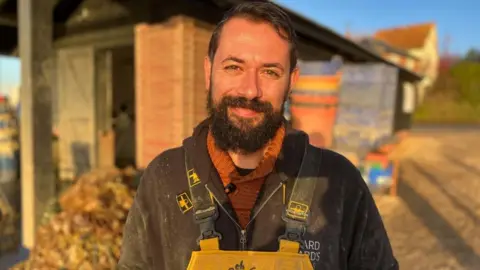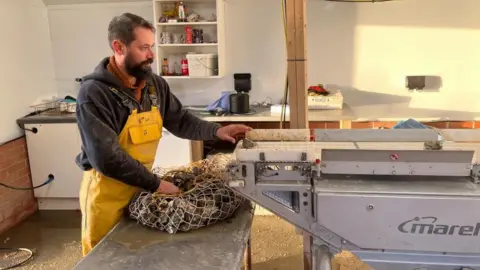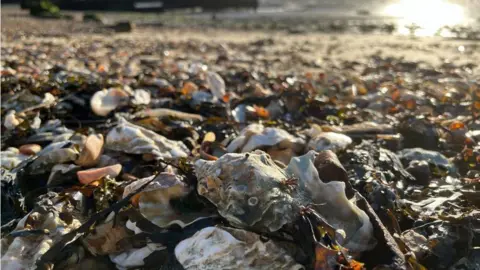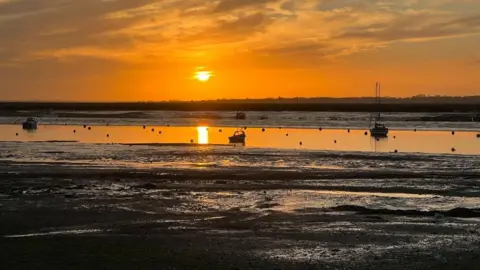Mersea Island oyster farmer joins legal bid over sewage spills
 BBC
BBCAn eighth generation oyster farmer has joined a legal bid to toughen government policy on water companies discharging sewage into the sea.
Family business Richard Haward Oysters, based on Mersea Island, Essex, has operated for 253 years.
Operations manager Tom Haward said the "industry could be destroyed if water companies aren't held to account".
Anglian Water said it was investing more than £200m to reduce spillages across the East of England.

Untreated sewage is discharged into costal waters by storm overflows, which are designed to prevent sewers becoming overloaded in an emergency.
However, their use has increased in recent years as climate change has led to more rainfall and water infrastructure has not kept pace with population growth, the Department for Environment, Food and Rural Affairs (Defra) said.
The government has given water firms until 2050 to invest in and improve sewers to prevent them from overflowing into English waterways and coastlines.
A claim for a judicial review has been made by Mr Haward, the Marine Conservation Society, activist Hugo Tagholm and the Good Law Project.
The group hopes to compel the government to impose tighter deadlines on water companies to significantly reduce the use of storm overflows and expand protection for coastal waters.

While Mr Haward's business has not been adversely affected by sewage, he said it was important to "stand up and shout about things like this".
"Our oysters are safe to eat and the waters are beautiful and clean," he said.
"But it's about pre-empting it before it becomes a problem, as opposed to it happening and overwhelming us and then becoming too late to do anything about it."
Mr Haward said he wanted to not only safeguard his family's business but the industry as a whole.
"The industry has a legacy," he said.
"The UK's famous for it, Mersea is very famous for it and I'm proud to be part of that."

Mr Haward said there had been "a renaissance of oyster eaters in the UK" and so the industry could have "an amazing future".
"So it's really important we safeguard it and protect it for its future," he said.
Defra has declined to comment on the legal bid.
A spokeswoman for Anglian Water said: "We completely accept Combined Sewer Overflows (CSOs) are history, particularly as our climate changes and extreme weather is more commonplace.
"But until they can be eradicated, they act as a necessary safety valve in old sewerage systems, to protect homes and businesses from flooding during heavy rainfall."

Find BBC News: East of England on Facebook, Instagram and Twitter. If you have a story suggestion email [email protected]
